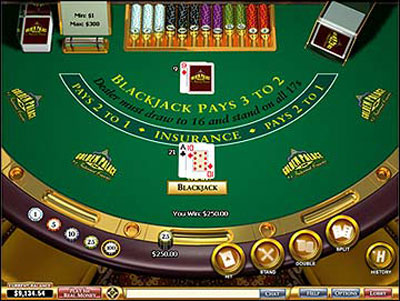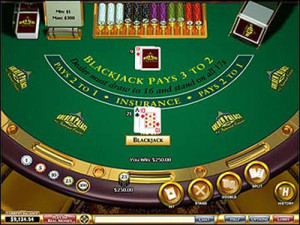There is a switch in the human psyche that controls addiction to risks. We all have not, no matter how nominally risk averse we are. If we didn’t, we wouldn’t leave the house and go anywhere for fear of the consequences, and doubtless everyone has moments when something turned unexpectedly in our favour and we feel a delicious frisson of pleasure to warm our souls. No doubt about it – having a gamble come off brings a huge thrill to most people, even if that pleasure is tainted with guilt.
Mostly we think of gambling as a mug’s game and buy our lotto tickets without serious expectation of winning anything bar the occasional tenner. At the other extreme are the professional gamblers, people who know how the system works, understand the odds and how to beat them – and that includes preventing being banned from betting when they begin to win, whatever form that takes – from dogs to poker tables to roulette wheels to share deals. No doubt some lose money hand over fist but most seem to give the outward appearance of being very rich indeed, which doesn’t make their choice rational or more morally virtuous.
In the spirt of abstinence, some churches would hold that gambling is by its very nature ungodly and immoral, or at least amoral. This is not the reason I disapprove of gambling. There is the addictive aspect, to which some people are prone to gambling obsessively, just as others smoke or drink or use drugs secretly and to excess, or for that matter engage in any other form of behaviour beyond the normal limits of acceptability. Any of these can fragment life, but gambling does not prevent you functioning normally. What it does do is cause you to wager on practically anything, lose money, and keep funding further bets to try to recoup those losses, ending in a downward spiral of debt, the end of relationships and unhappiness all round.
Cases of share dealing have a similar impact, particularly among traders who have hidden losses and caused major financial disaster in markets and for their employers in particular. Everyone remembers the “rogue banker” Nick Leeson bringing down Barings Bank, but there were plenty more too, like this example quite recently. Arguably this is caused by weak risk management regimes, though compliance is much tighter than it used to be.
But gambling or risk-taking does not need to be excessive to be antisocial. Arguably the risk of complex financial instruments and spread betting means people can put money into things they do not understand, and find the financial consequences far exceed anything they ever imagined. Why are such products offered? Precisely because they are not understood!
Inevitably we have to take risky decisions in life, some more so than others, but good sense dictates that we should do so on the basis of the best information available at the time, and understanding clearly the consequences of your choice. That doesn’t mean choosing the least risky option – nobody would get a mortgage if those were the criteria – but doing so in a measured way so you have evaluated and know how to optimise your chances of success, and don’t take risks you can’t control.
The government seems to regard betting as a harmless pastime that brings pleasure to millions, including share dealing and other forms of legalised gambling, but thankfully the regime of super casinos was halted. However, online betting attracts no tax, which is where the boom in gambling now seems to be focused. No limits, few controls, the consumer’s free will diminished since they make it very hard for you to say no. Not that I will be going on such sites, but they do have many ways to entice you in and stay there betting cash – not least the “free bet” promotions.
But commercial value notwithstanding, betting for its own sake seems to me devoid of purpose. Ultimately it loses money for the punter but does not create or add value. It is an activity filled with cynicism when time is better spent adding to the sum of human knowledge and achievement.


